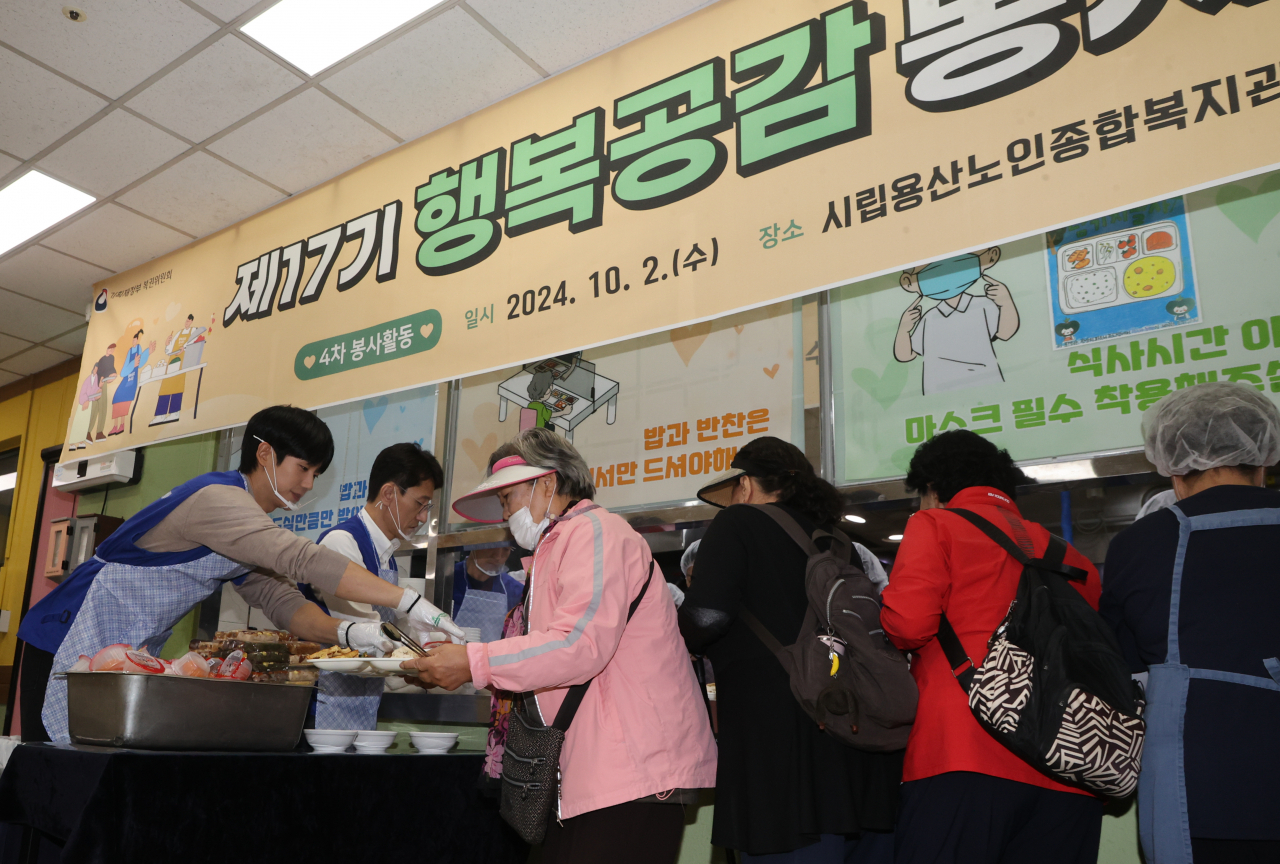
 |
| Senior citizens receive food at a welfare center in Seoul's Yongsan-gu on Oct. 2. (Yonhap) |
One in four South Korean senior citizens wish to use their assets for themselves and their spouses rather than passing them on to their children, according to government data on Wednesday.
The 2023 survey of 10,078 senior citizens by the Korea Institute for Health and Social Affairs, Gallup Korea and the Health Ministry between Sept. 4 and Nov. 12 last year showed that 24.2 percent of the respondents chose to prioritize using their assets for their own and their spouse during their lifetime instead of leaving it for their children.
Some 51.4 percent preferred to distribute their inheritance equally among all their children, while 8.8 percent said they would pass on more to the child who provided them with more support.
In particular, the percentage of respondents who intended to give more inheritance to their oldest son sharply dropped from 21.3 percent in 2008 to 6.5 percent in 2023, reflecting a shift in the deeply rooted belief in favoring the eldest son for inheritance.
Meanwhile, the data found that senior citizens consider those aged 71.6 and above to be "elderly," a higher threshold than the government's official classification of senior citizens as those 65 or older. The figure was calculated from the average response of 10,078 senior citizens. Of the total, 79.1 percent of the respondents believed a person should be considered "elderly" if they are above 70.
In addition, Korea's senior citizens suffer from 2.2 chronic diseases on average, according to the data.
The data also found that the digital divide for older people has been increasingly bridged over the years. Smartphone usage among older people increased from 56.4 percent in 2020 to 76.6 percent in 2023, while those who had computers rose from 12.9 to 20.6 percent during the period. Some 2.1 percent of respondents said they owned a smartwatch.
Still, many seniors feel they struggle to keep up with the rapid digital transformation. Some 67.2 percent of respondents said they find it challenging to keep up with the digital transformation when asked how they felt about it, according to the survey.
The average annual income for senior households stood at 34.69 million won ($25,449) last year, while the average financial assets amounted to 49.12 million won. The data also found that individual senior citizens, on average, possessed real estate assets of around 318.17 million won.
Some 38 percent of respondents preferred to be cremated and placed in a columbarium, while 23.1 percent said they preferred cremation followed by natural burial.









